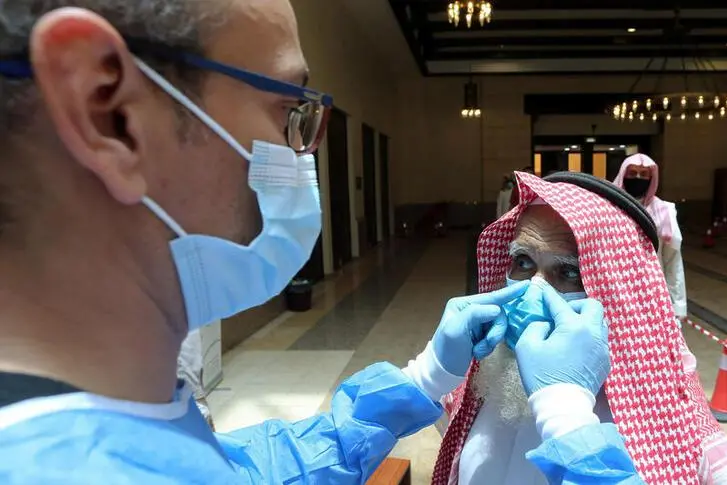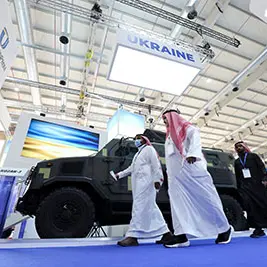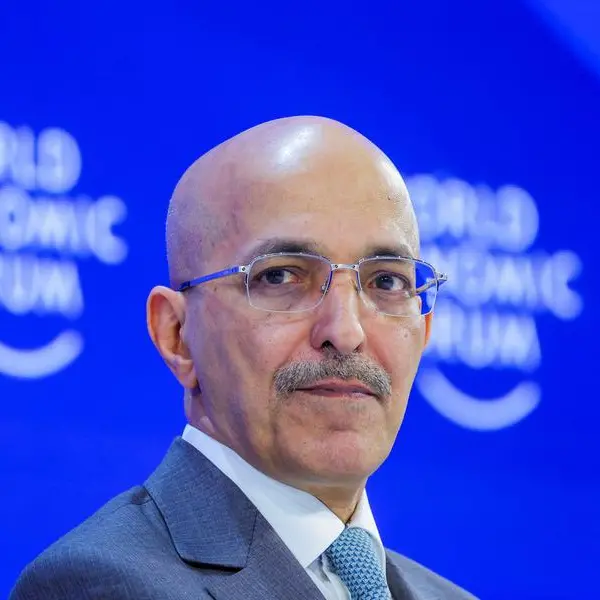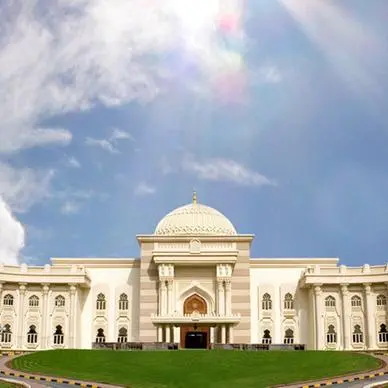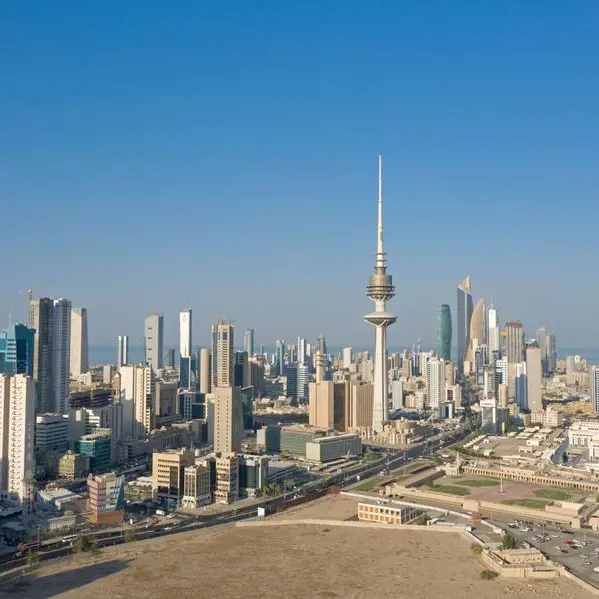PHOTO
DUBAI: Charity begins at home, they say, but in the era of the world pandemic such a domestic-focused approach is neither desirable nor effective.
That is why several global philanthropic organisations, and big name donors, have come to the fore in the course of the COVID-19 crisis to offer financial, practical and logistics support to those people in the world whose governments do not have the means to extend assistance to their entire population.
Perhaps the best known is Bill Gates, the American entrepreneur who has pledged to give away his entire multi-billion dollar fortune to beat the virus. Other eminent entrepreneurs have also given billions in the attempt to find an elusive vaccine or effective treatment.
But Saudi Arabia has its own famous philanthropist in the shape of Prince Alwaleed bin Talal, the Kingdom Holding magnate, who has for many years been dispensing charity via his organization Alwaleed Philanthropies.
Abeer Al-Fouti runs the global side of that enterprise and is convinced that only a global approach will work in the face of the biggest health challenge for nearly a century.
“The simple message is that actually COVID-19, despite all the challenges, whether economic, or emotional or health or luck, has one important lesson that we have all learned, or should learn: That we are one world, we are one.
“If you think selfishly, it is going to come back and haunt you anyway. So this is the time when we all need to come together and think we are one. Otherwise, we are all going to go down together,” she told Arab News.
As one of the ambitious young women coming to prominence as part of the Vision 2030 strategy of female empowerment, she obviously takes great pride in her work.
“This year we’re celebrating 40 years of our existence. If I can summarize it in numbers, we’ve been working for four decades in six continents, serving 200 countries with 355 global partners. We’ve finished 1,000 projects and spent over $4 billion, and we reached one billion beneficiaries across the world. That’s our latest update. And it’s all run by 10 Saudi females from Riyadh,” she said.
Alwaleed Philanthropies plays a major role in charitable giving within the Kingdom, supporting organizations and individuals across the spectrum of community development, health, education and empowerment. But Al-Fouti’s responsibilities are more global.
“I believe philanthropy pays a major role in filling the gap, with a regional platform bringing the government and private sector together, and focusing on those who maybe the system does not serve or does not cover. This is why His Royal Highness called us together, to do our research and then to explain who we think we should support,” she said.
“We decided to focus on those that were most vulnerable in the Arab world, in the Middle East and Africa,” she said.
Fighting the pandemic has been the main focus for the organization since the virus broke on the world earlier this year. In April, Alwaleed Philanthropies gave an extra $20 million to provide medical and economic help to poorer countries during the pandemic, bringing its total COVID-19 support to $30 million, on top of its usual budget.
“In these times of unprecedented crisis it is more important now than ever that we pull our resources together in the battle against COVID-19. With many developed nations struggling to cope with the COVID-19 pandemic, we must spare a thought for the developing countries of Africa and the less fortunate countries in the Middle East,” Prince Alwaleed said then.
“I’m sure you know it’s in the DNA of our culture and our religion — giving and charity. Everyone is required to give as part of the culture,’ Al-Fouti added. Alwaleed’s work runs alongside an equally generous program of charitable initiatives funded by the government of Saudi Arabia for projects both within the Kingdom itself and the rest of the world.
Maintaining the international partnerships that have been cultivated over the decades is a vital part of her work. The Gates Foundation, Gavi, the vaccination organisation, the World Health Organization and the United Nations are important allies in the global sphere.
“We have criteria for selection, and mainly we want to work with partners that are credible and share common values, and those which have long-term impact, in addition to other criteria. We have a detailed list of criteria and we tick those which have compatibility, reliability and credibility. We have to ensure that the money we give will reach those in need,” she said.
Another important ally is the Islamic Educational, Scientific and Cultural Organization, ISESCO, which has partnered with Alwaleed on many regional projects.
“We support initiatives in 200 countries, regardless of gender, race or religion — as long as they have shared values,” she explained.
Those initiatives fall into four main categories. Community development involves work on essential infrastructure — housing projects, employment initiatives and educational opportunities to help achieve the UN’s sustainable development goals.
Second comes empowerment initiatives for women and young people. In partnership with international institutions such as the UN, Alwaleed works to enhance opportunities for underprivileged women across the Middle East and Africa and to advance the interests of the big youthful demographic in the region. “We want people to become self-sufficient and empowered, Al-Fouti said.
For example, Alwaleed was a leading partner in the Turquoise Mountain project in Afghanistan, which sought to revive traditional craft industries in the war-ravaged country, providing employment for thousands of women and young people and helping to restore traditional buildings for use as medical and educational facilities.
Next comes disaster relief, again often in conjunction with UN organizations. Alwaleed played an active role in helping Albania to recover from the recent earthquake there, for example.
Finally, there is what Al-Fouti regards as her “favourite” work — the initiatives to “bridge cultures” through educational and cultural activities in several countries. Alwaleed is involved in projects in the Louvre in Paris and with Berlin Museum to explain Islamic culture to Europeans.
“We believe the best way for people to understand each other is through art and culture. We’re planning to work this year with all our educational centres, and with the Louvre and Berlin, to see how we can revisit this strategy and see how we can have more impactful projects in terms of bringing people together,” she said.
But the reaction to the pandemic has understandably taken up a lot of the organization’s time this year.
“We decide to get in and minimize or control the spread of the virus by strengthening local capabilities, for example through or work with ISESCO. In Africa they asked us to provide them with masks and with alcohol cleaning products. We decided that we were also going to go in and create or scale up factories, get jobs going and make the initiative available and sustainable, and this is what we are doing,” Al-Fouti said.
Through the collaboration with Gavi, Alwaleed has been able to bring medical relief to remote areas in the region. One of the repercussions of the pandemic has been that other essential medical projects, such as polio vaccination or routine immunization for children, have been scaled back drastically, partly because of travel restrictions but also because of the pressure on funds.
“In some places when people were being asked to stay at home, some didn’t have a home to go to. They were asked to wash their hands and they didn’t have water. That’s why we invested in areas where we thought there is a gap,” Al-Fouti explained.
So, those 10 women in Riyadh have the support and back-up of hundreds of partners around the world, with a global perspective in the midst of the COVID-19 crisis.
“We have partners and embedded collaborative relationships that we consider to be an extension of our team. So we are not alone. There is a saying ‘work smart, not hard.’ But we work hard as well. In fact, we really do work hard,” she said.
Copyright: Arab News © 2020 All rights reserved. Provided by SyndiGate Media Inc. (Syndigate.info).
